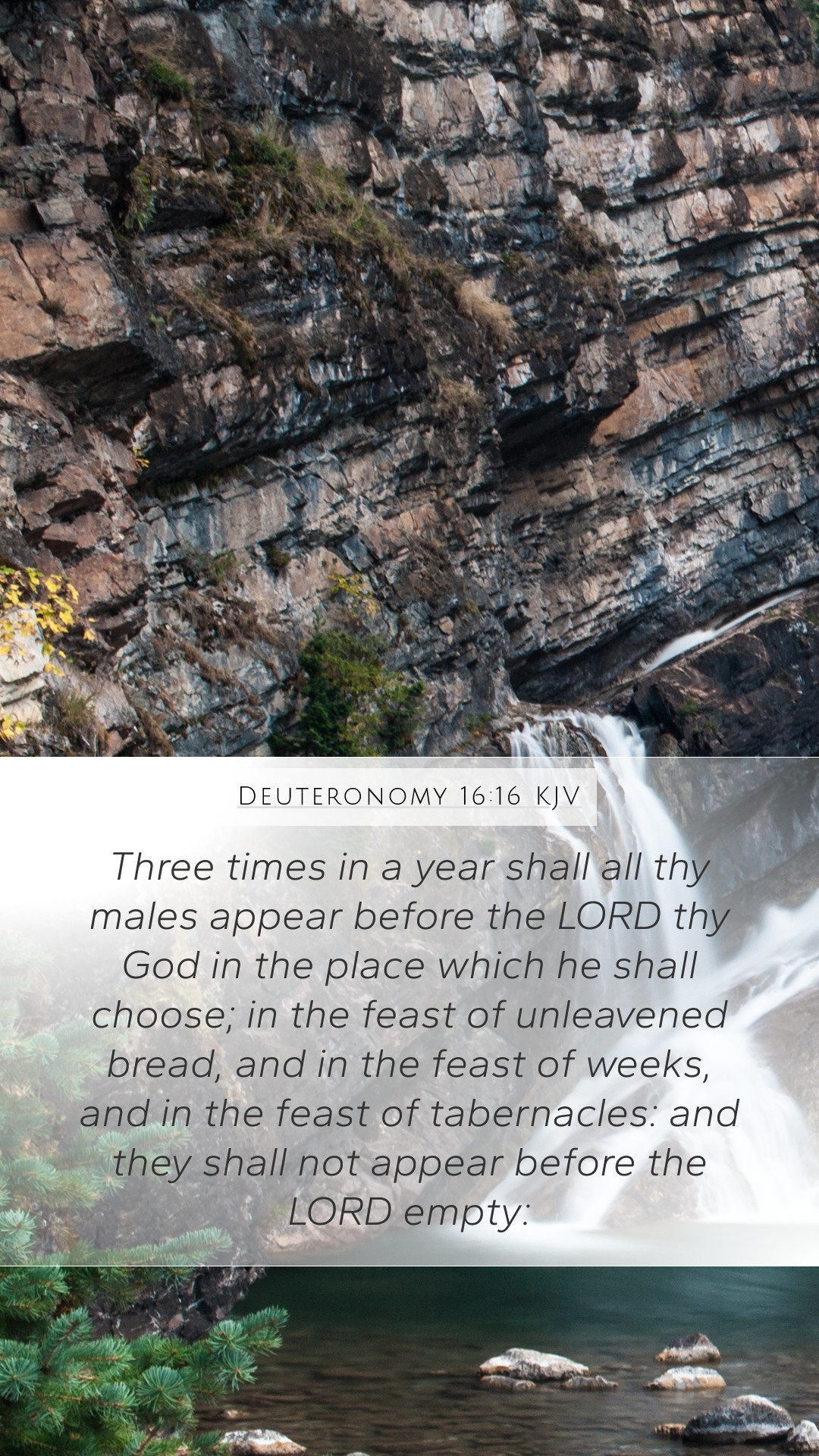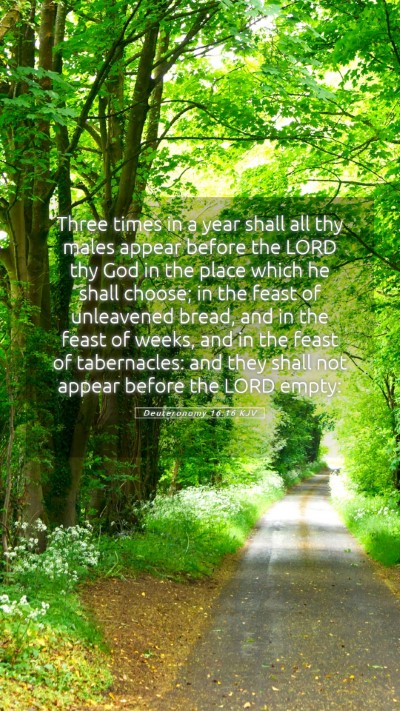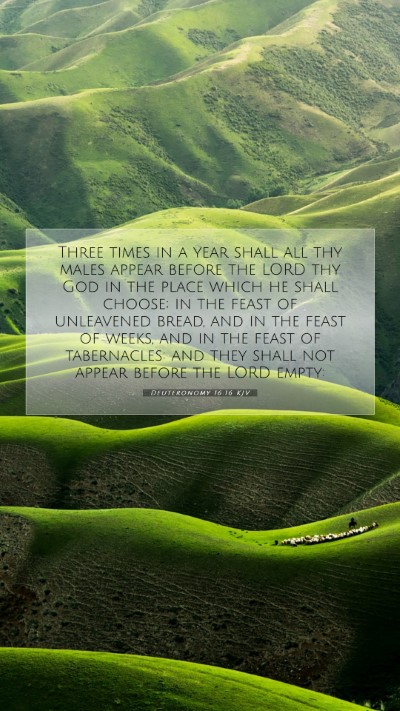Understanding Deuteronomy 16:16
Deuteronomy 16:16 states: "Three times in a year shall all thy males appear before the Lord thy God in the place which he shall choose; in the feast of unleavened bread, and in the feast of weeks, and in the feast of tabernacles: and they shall not appear before the Lord empty."
Bible Verse Meanings
This verse highlights the importance of designated feasts in the Israelite religion, emphasizing the necessity of appearing before God during these sacred times. It reflects not only the seriousness of worship and community in Israel but also the assurance that God ordained specific times for communion.
Bible Verse Interpretations
- Obligation of Worship: Matthew Henry asserts that the requirement to appear three times a year signifies the importance of communal worship and God's desire for His people to gather and honor Him.
- Feast Importance: Albert Barnes discusses the significance of the three feasts—the Feast of Unleavened Bread, Feast of Weeks, and Feast of Tabernacles—each representing key aspects of Israelite identity and history.
- Stewardship: Adam Clarke notes that the directive to not appear empty-handed ties into the theme of stewardship and the offering, indicating the need for believers to bring their best to God as an act of worship.
Bible Verse Understanding
The phrase "appear before the Lord" signifies a personal encounter with God, which was central to the spiritual life of the Israelites. This annual pilgrimage to the chosen place symbolizes a deep relationship with God, serving both individual and collective faith needs.
Bible Verse Explanations
In this context, the command for males to appear before God at prescribed feasts demonstrates God's authority and the joy of communal celebration within the covenant community. These celebrations are rooted in gratitude and remembrance of God's provisions and deliverance.
Historical Context
Understanding the historical background of these feasts enriches the interpretation of Deuteronomy 16:16. Each feast commemorates distinct events—deliverance from Egypt, the giving of the Law, and the harvest season—that are pivotal in Israel's identity as a covenant people.
Bible Cross References
- Exodus 23:14-17 - Discusses the three annual feasts.
- Leviticus 23 - Provides detailed descriptions of the feasts.
- Isaiah 1:13-14 - Critiques Israel's empty worship and sacrifices.
- Luke 2:41 - Mentions Jesus’ visit to the Temple during Passover.
Application of the Verse
For modern believers, Deuteronomy 16:16 encourages consistent worship and community involvement in faith practices. It emphasizes the idea of bringing a heartfelt offering to God, which can apply in various forms today as individuals engage in spiritual practices that honor God and the community.
Bible Study Insights
This verse serves as an important guide in Bible study groups and online Bible study sessions, highlighting themes of worship, communal gathering, and the importance of remembrance in the life of faith.
Conclusion
In conclusion, Deuteronomy 16:16 not only instructs the Israelites on communal worship but also teaches modern believers about the heart of worship, the joy of fellowship, and the need for intentionality in our spiritual offerings to God.


